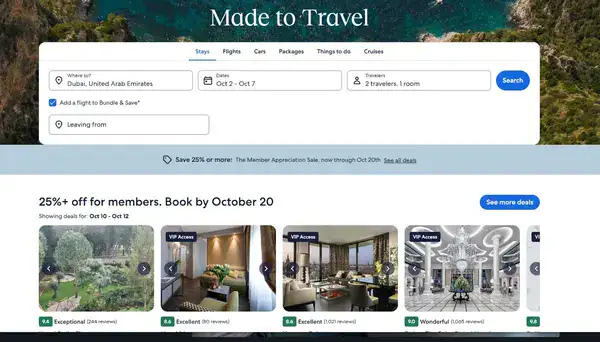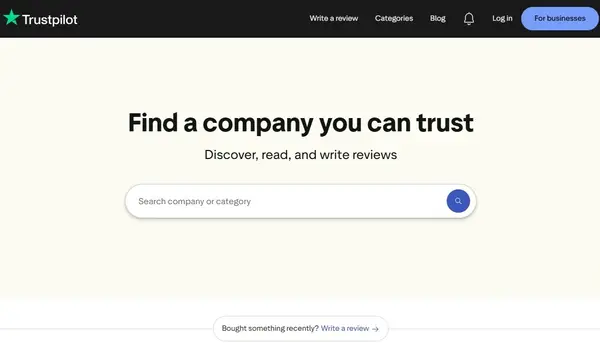Booking a holiday online is the go-to move for most people now, but it’s not exactly foolproof. Whether you’ a’re looking for luxury holidays or budget solutions, the easiest way to book a dream holiday online safely is by using trusted platforms, checking for financial protection, and verifying the legitimacy of every booking. If you’re careful, you can lock in flights, a place to stay, and all the extras without any major headaches.

People tend to weigh package deals against the do-it-yourself route, trying to balance convenience and flexibility. Big names like Booking.com and Expedia let you search for hotels, flights, and car rentals all in one spot, while tools like Skyscanner help you sniff out the best flight prices. Picking a solid platform from the get-go really does make the whole planning process smoother.
Of course, finding a good deal is only half the battle—staying safe is just as crucial. Learning to spot scams, checking for ATOL protection, and sticking to secure payments can make the whole experience a lot less nerve-wracking.
Planning Your Dream Holiday Online
Booking a holiday online means you’ll need to figure out your budget, pick your destination, and decide how hands-on you want to be with the planning. A little prep up front can save you money, stress, and time once you’re actually on your trip.
Setting Your Holiday Budget and Priorities
Let’s be real: if you don’t set a budget, things can spiral fast. Tally up what you’re willing to spend—flights, where you’ll sleep, food, getting around, and what you want to do. Don’t forget a little wiggle room for surprises (because they always pop up).
Breaking down your budget into categories helps keep things in check:
| Category | Approx. Share of Budget | Notes |
|---|---|---|
| Flights | 30–40% | Compare prices across multiple sites |
| Accommodation | 25–35% | Hotels, hostels, or rentals |
| Food & Drinks | 15–20% | Daily meals, snacks, extras |
| Activities | 10–15% | Tours, tickets, excursions |
| Other Costs | 5–10% | Insurance, local transport, shopping |
And priorities? They’re personal. Maybe you’d rather splurge on a fancy hotel, or maybe you’re all about unique experiences and don’t care where you crash. Sorting this out early can save you from overspending later.
Choosing the Right Destination
Picking where to go isn’t just about where looks cool on Instagram. How much time do you have? What’s the weather like? What actually interests you? A weekend might be perfect for a city break, but if you’ve got a couple weeks, why not hop between countries? Sites like The Five Star Traveler or Travel and Destinations can spark ideas if you’re stuck.
Don’t overlook the practical stuff: visas, vaccines, and local safety. Official government sites or services like iVisa can clear up entry requirements quickly.
It’s also worth checking how much things cost once you’re there. Cheap flights aren’t much help if everything else is expensive on the ground, and vice versa. Balancing these details is key to not blowing your budget.
Deciding Between Package Holidays and DIY Trips
A package holiday wraps up flights, a place to stay, and sometimes food or activities into one neat bundle. It’s convenient and usually comes with better protection, especially with big providers like Expedia. If you want things straightforward, it’s a solid bet.

On the flip side, booking everything yourself (DIY style) gives you more freedom and maybe even better deals—if you’re willing to put in the time. Tools like Skyscanner or Google Flights are your friends here. Just know it’s more work.
So, what’s better? It depends on you. If you want minimal hassle, go for a package. If you’re picky about every detail, DIY could be more your style. Both can work out great if you know what you want.
Selecting Trusted Booking Platforms
Sticking with reputable booking sites, reading genuine reviews, and comparing prices can save you from a lot of grief. It’s not just about saving money—it’s about making sure your plans don’t fall apart at the last minute.
Using Reputable Travel Websites
Big platforms like Booking.com, Expedia, and Skyscanner have a track record. They’ve got clear policies, and you know customer support is there if you need it.
Looking for something different? Airbnb is great for local stays, and Vrbo is good for groups or families. Using well-known names means you’re less likely to get scammed or hit with hidden fees.
Quick tip: before you click “book,” check for HTTPS in the URL, look at the payment options, and make sure the pricing is transparent. Credit cards are usually safest for this stuff.
Evaluating Reviews and Ratings
Don’t just trust the star rating—dig into the reviews. Sites like Trustpilot and Tripadvisor are good for honest feedback, even though the latter seems to have lost some authority in recent years. Look for recent comments, since things can change fast in the travel world.
Focus on reviews that mention things you care about, whether that’s cleanliness, location, or how responsive the host is. If a review is super generic, it’s probably not that helpful, or even fake. The detailed ones usually tell you what you actually want to know.
Comparing Prices Across Platforms
Prices can bounce all over the place between sites, even for the same hotel or flight. Using tools like Skyscanner and Trivago makes price-checking a lot less tedious.
It’s smart to peek at the actual airline or hotel website too—sometimes they’ll offer a better deal or perks like free breakfast or points. Lining up a few options side by side can make the choice obvious.
Jot down prices, cancellation terms, and what’s included from a few different sites before you commit. You might be surprised at the difference.
Booking Flights and Accommodation Safely
Comparing trusted platforms, checking real reviews, and using secure payment methods go a long way. The right approach helps you dodge scams and gives you options if your plans shift.
Finding the Best Flight Deals
Flight prices are all over the map, so it pays to shop around. Skyscanner and Google Flights let you track fares and filter for what matters to you—like layovers or baggage rules.
When you’re ready to book, doing it on the airline’s official website is usually the safest bet. It minimizes the chance of hidden fees and makes it easier to get help if something goes wrong.
Always use a credit card rather than a debit card or bank transfer for extra protection; if there’s a dispute, you’ve got stronger protection. And hey, don’t forget about rewards programs—they can add up to real savings over on future trips.
Securing Quality Accommodation
When you’re booking a place to stay, double-check that it’s legit. The most popular travel booking sites are reliable, but it’s still worth looking up the property on Google Maps, reading outside reviews, and messaging the host through the platform to make sure everything lines up.
Keep all chats and payments on the official site. Airbnb, for example, warns you not to take things off-platform—that’s a red flag for scams.
Look for clear cancellation policies, real photos, and hosts with verified profiles. If it’s a hotel or guesthouse, maybe give their official site a quick visit or call just to be sure they exist.
Understanding Flexible Booking Options
Plans change—sometimes in ways you can’t predict. Airlines and hotels are offering more flexible options these days (though sometimes you’ll pay a little extra for that peace of mind). Weighing the cost against the ability to change or cancel is worth a minute of your time.
Sites like Travorio point out secure payment choices, even crypto if that’s your thing.
Here’s a quick breakdown:
| Option | Typical Benefit | Possible Trade-Off |
|---|---|---|
| Non-refundable | Lower price | No refund if canceled |
| Refundable | Money back if plans change | Higher upfront cost |
| Flexible change | Adjust dates without penalty | Limited to certain classes |
Reading the fine print before you hit “confirm” can spare you a lot of hassle if your plans shift for unexpected events.
Avoiding Scams and Fake Websites
There’s always a risk of running into dodgy booking sites, fake listings, or sketchy payment requests. Taking a minute to check if a website is legit, sticking with secure payment methods, and looking for security features can save you from losing money or worse—your personal info.
Spotting Fake Listings and Websites
Scammers have gotten pretty good at making booking sites look almost identical to the real thing. They’ll swipe logos, images, and even layouts from actual hotel or airline pages. But if you look closely, little things—like odd domain names or tiny spelling mistakes in the URL—can reveal the fraud.

It’s always smart to dig up independent reviews before booking. Sites like Trustpilot let people share genuine feedback, so you can see if a site has a sketchy track record. If there aren’t many reviews or they all sound suspiciously glowing, that’s a red flag.
Sponsored search ads can be risky, too. Just because something pops up first in search results doesn’t mean it’s legit—scammers buy ads, too. Honestly, it’s safest to go straight to the official hotel or airline website.
Some classic warning signs:
- Prices that seem way too good to be true
- Cancellation policies that are vague or buried in fine print
- Contact info that’s just a web form or a generic email address
Getting familiar with these signs makes it a lot easier to dodge fake hotel booking websites.
Safe Payment Methods for Online Bookings
How a site asks for payment says a lot. Real booking platforms take standard credit or debit cards and send a proper receipt. Using a credit card also gives you a bit of backup, since card companies can reverse unauthorized charges.
Shady sites, on the other hand, often push for wire transfers, prepaid gift cards, or even crypto. Those are nearly impossible to trace or get back once they’re gone. If a site insists on those, that’s your cue to walk away.
Verifying Website Security Features
Legit websites encrypt your info. Look for https:// in the address bar and that little padlock icon. If they’re missing, don’t risk your details.
Check that the company name matches the domain. If you see a big hotel brand slapped on an unrelated URL, that’s a pretty strong clue something’s off.
Don’t just click through browser warnings about unsafe pages. Tools like Bitdefender’s Link Checker or Scamio are handy for testing sketchy links. Using them can save you from malware or phishing headaches.
Reliable booking platforms also spell out their privacy and refund policies. Scam sites usually keep things vague or incomplete, making refunds a nightmare. Take a minute to read those before you pay—it’s worth it.
Maximizing Safety and Peace of Mind
Travelers can cut down on risk by checking for financial protection, saving their records, and acting fast if anything feels off. These habits go a long way toward keeping your money and info safe when booking travel.
Checking for ATOL and Financial Protection
If you’re booking a package holiday with a UK-based company, always look for an ATOL certificate. The ATOL scheme (Air Travel Organiser’s Licence) means if the company goes under, you won’t be stranded or out of pocket.
But not every trip is covered. Flights booked straight with airlines or just hotels might not qualify. In those situations, see if the company is an ABTA member or offers another kind of financial protection.
A quick checklist:
Doing this can save you a lot of stress—and potentially a lot of money—if your travel plans hit a snag.
Keeping Records and Confirmation Emails
Save your booking confirmations, payment receipts, and any emails you get—digitally and, if you can, on paper. If there’s ever a dispute or a company asks for proof, these will be your best friends.
Set up a dedicated folder in your email so you can find things fast. Printing out key stuff like flight itineraries or hotel vouchers is a lifesaver if you lose internet access.
Reporting Suspicious Activity
If you spot weird charges, fake confirmations, or a fishy website, act quickly. Call your bank or credit card company right away—they can help block further transactions.
You can also report dodgy booking sites to consumer protection agencies like the UK’s Action Fraud service or the Federal Trade Commission in the U.S.. It helps stop others from getting caught out.
Enhancing Your Holiday Experience
Making smart booking choices gets easier if you dig into real customer feedback and compare a few different platforms before you commit. Looking for credibility, specifics, and consistency in reviews can help you avoid hassles and make your trip smoother.
Leveraging User Reviews for Better Choices
User reviews are gold for figuring out what to expect from hotels, flights, and holiday packages. Sites like Tripadvisor and Trustpilot are packed with honest experiences—good and bad. If you keep seeing the same issues pop up, like poor customer service or sparkling clean rooms, that’s usually telling.
Focus on reviews that mention actual details—check-in, room quality, staff attitude—rather than just “it was nice” or “never again.” Those specifics make a big difference.
Also, pay attention to the number and date of reviews. A place with hundreds of recent, balanced reviews is generally more reliable than one with just a handful of suspiciously positive ones.
Utilizing Comparison and Review Sites
Comparison platforms take a lot of the legwork out of figuring out prices, amenities, and all those weird booking conditions that seem to pop up. Sites like Tech Advisor’s guide on booking holidays online dig into how you can stack package deals against the do-it-yourself approach, so you’re not left wondering if you missed a better deal.
Review sites usually pull together ratings from a bunch of different booking platforms, which helps paint a fuller picture of what’s actually reliable. That way, you’re less likely to get tripped up by someone’s biased take or missing info.
